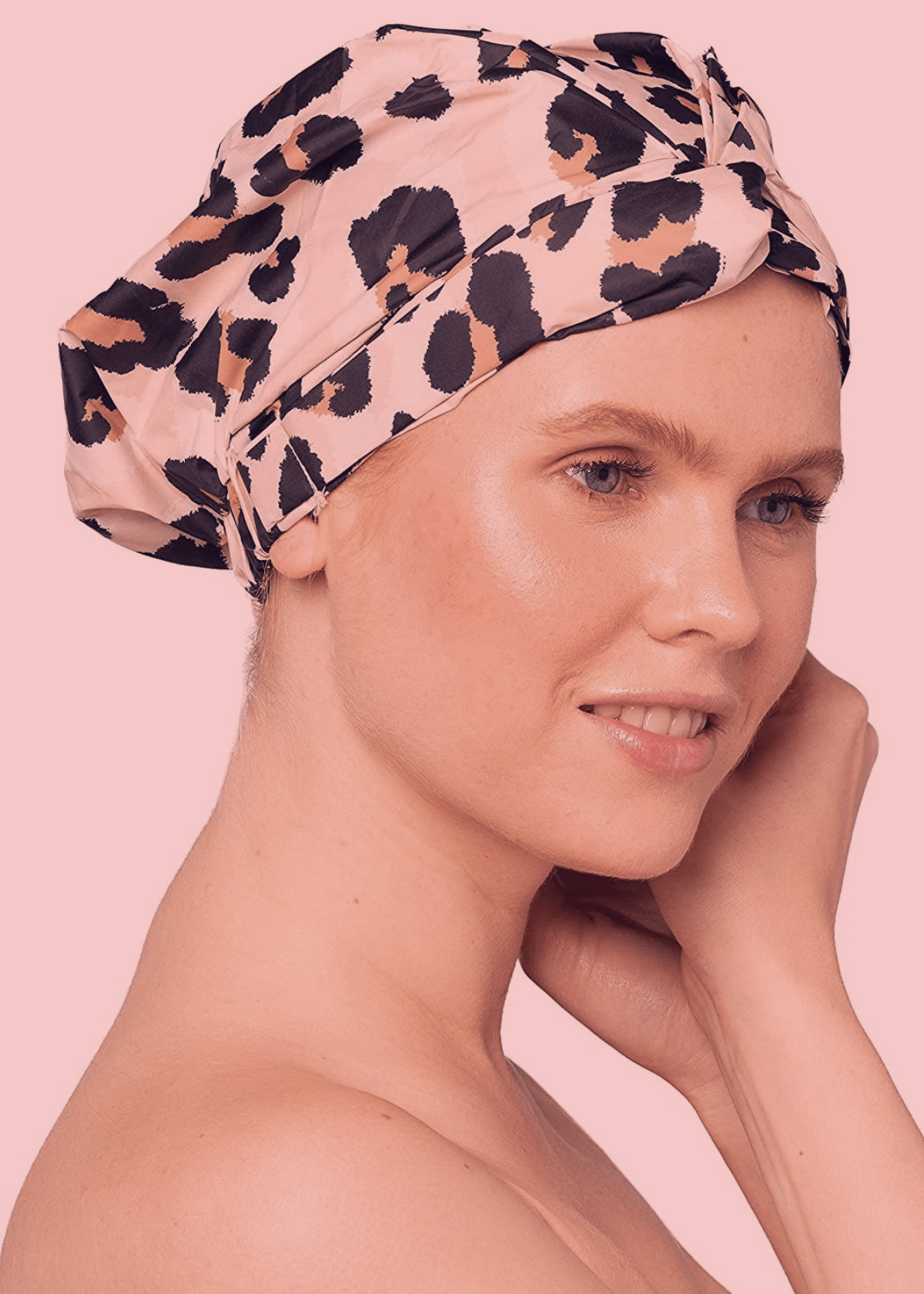African sleep caps are an essential part of maintaining healthy and beautiful hair while you sleep. These caps come in a variety of styles and materials to suit different hair types and needs. In this buyer's guide, we'll cover everything you need to know before you buy an African sleep cap.
Materials
African sleep caps are typically made from satin, silk, or cotton. Satin and silk are the most popular materials because they are soft, gentle on the hair, and help to retain moisture. Cotton sleep caps are also available, but they can absorb moisture from the hair, which can lead to dryness and breakage.
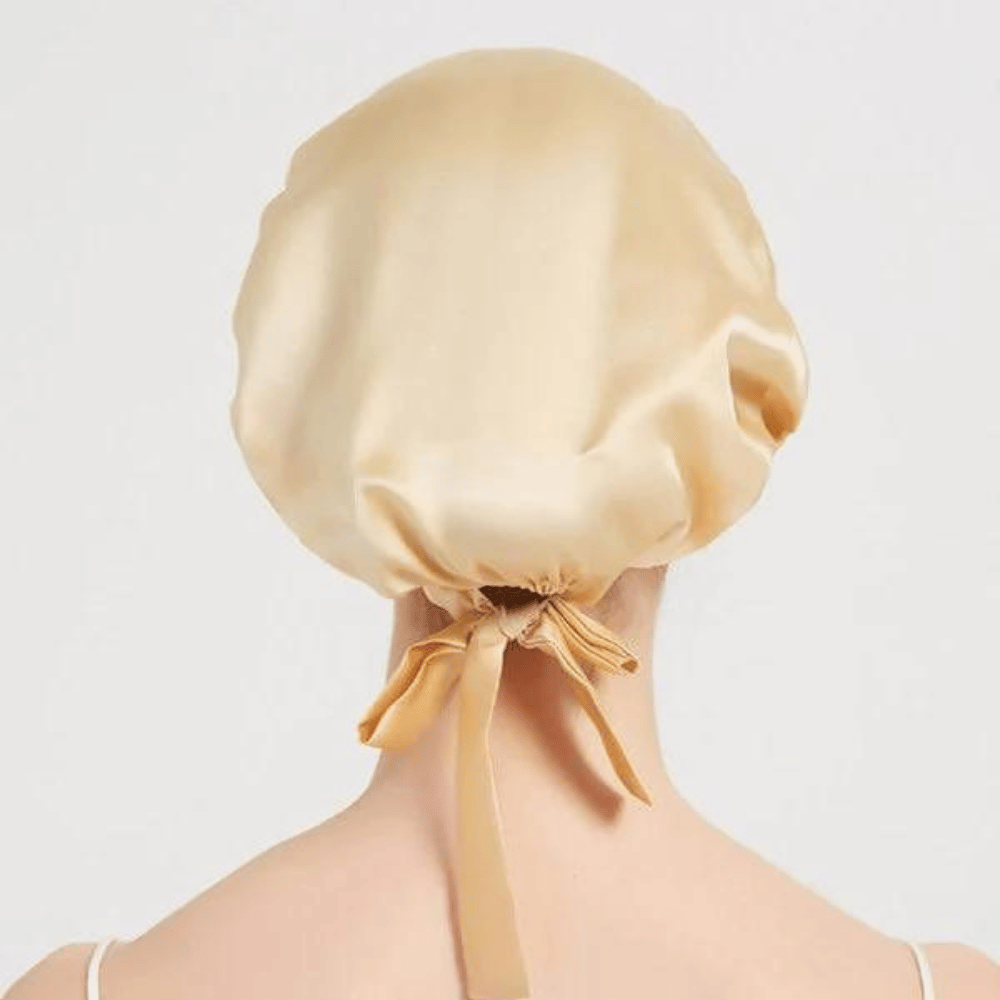
Styles
There are several styles of African sleep caps to choose from, including headwraps, bonnets, and caps for curly hair. Headwraps are a popular style that can be tied in various ways to accommodate different hair lengths and styles. Bonnets are another popular style that is easy to wear and offers full coverage for the hair. Caps for curly hair are designed specifically for those with curly or coily hair and typically have a looser fit to accommodate the volume of the hair.
Features
When choosing an African sleep cap, there are several features to consider. Look for a cap that is breathable and lightweight to prevent overheating and discomfort while you sleep. Also, consider the size and fit of the cap to ensure that it stays in place while you sleep. Some caps also come with additional features, such as a silk lining or adjustable straps, to provide added comfort and customization.
Product Recommendations
If you're in the market for an African sleep cap, here are some product recommendations to consider:
SATINIOR African Pattern Headwrap: This headwrap is made from satin and features a bold African print. It can be tied in various ways to accommodate different hair lengths and styles.
Satin Bonnet Silk Lined Sleep Cap: This bonnet is made from satin and features a silk lining for added comfort and moisture retention. It also has an elastic band to ensure a secure fit.
Satin Cap for Curly Hair: This cap is designed specifically for those with curly or coily hair and has a looser fit to accommodate the volume of the hair. It is made from satin and helps to prevent frizz and breakage while you sleep.
In conclusion, African sleep caps are an essential part of maintaining healthy and beautiful hair while you sleep. Consider the material, style, and features of the cap when making your decision. Our top recommendations include the SATINIOR African Pattern Headwrap, Satin Bonnet Silk Lined Sleep Cap, and Focuscare Satin Cap for Curly Hair.
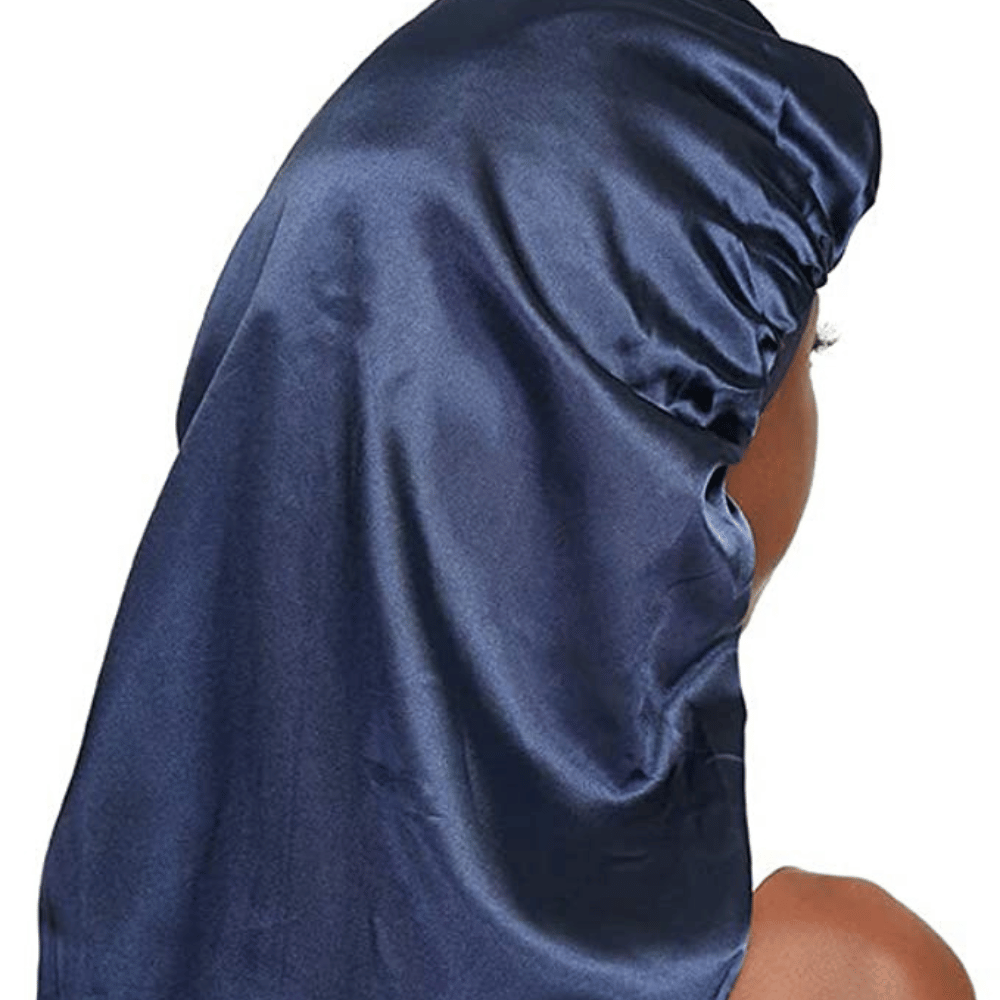
FAQs about the African Sleep Caps
People are curious about african sleep caps and what they can do for them, but they're not sure where to start.
Buying an african sleep cap can be a daunting task. There are so many different types and brands available, how do you know which one is right for you?
We've put together this FAQs to answer some of the most common questions people have about african sleep caps. This will help you figure out which type of cap is best for you, and give you an idea of what to look for when buying one.
Do sleep caps help with hair loss?
Sleep caps can potentially help with hair loss by preventing friction and breakage while you sleep. When you toss and turn in your sleep, your hair can rub against your pillowcase or other surfaces, which can lead to breakage and hair loss over time.
Wearing a sleep cap can help to protect your hair from friction and breakage by creating a barrier between your hair and the surface you're sleeping on. Additionally, sleep caps made from satin or silk can help to retain moisture in your hair, which can help to prevent dryness and breakage.
However, it's important to note that sleep caps are not a guaranteed solution for hair loss, and there can be many underlying factors that contribute to hair loss, such as genetics, hormonal changes, and certain medical conditions. If you are experiencing hair loss, it's important to consult with a healthcare professional to determine the underlying cause and to explore treatment options.
Overall, sleep caps can potentially help with hair loss by preventing friction and breakage while you sleep, but they should be used in conjunction with other hair care practices, such as a healthy diet, proper hair care routine, and addressing any underlying medical conditions.
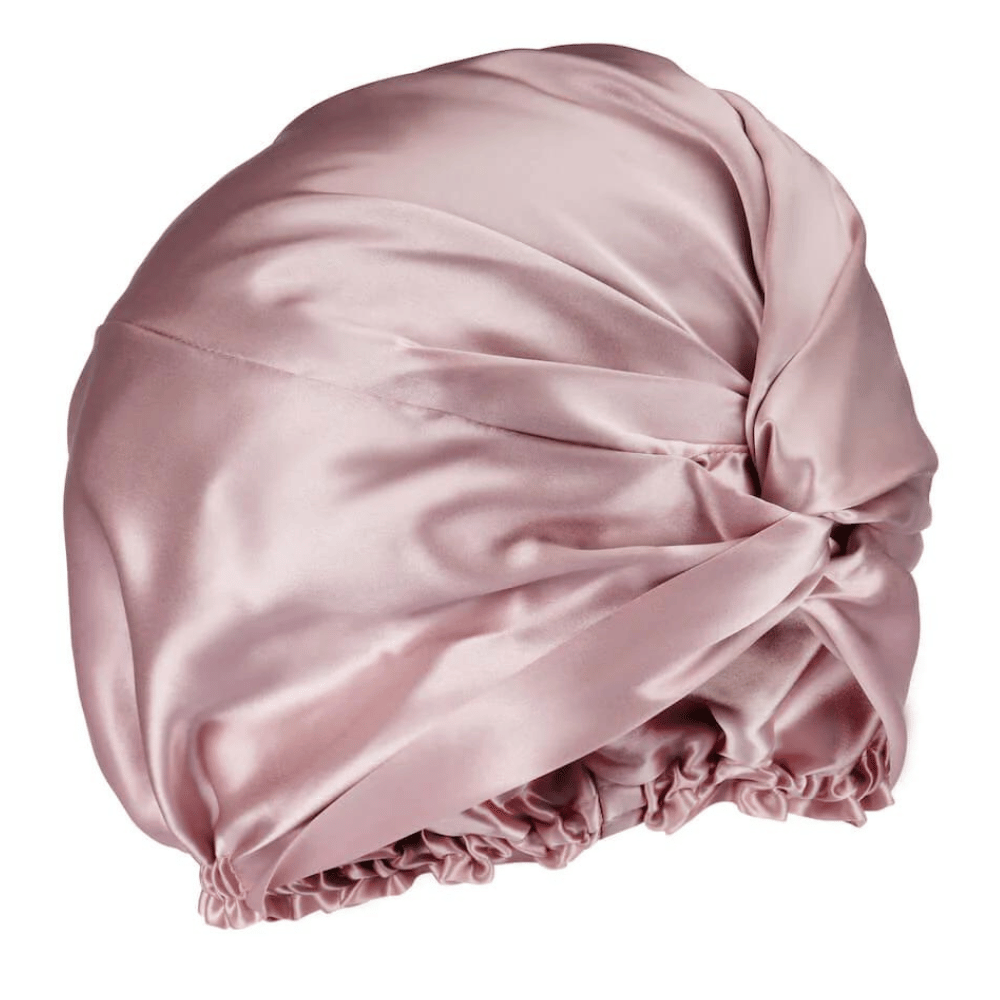
Are sleeping caps good for your hair?
Sleep caps can be good for your hair, depending on the material and design of the cap. Here are some ways that sleep caps can benefit your hair:
Reduce Friction: When you sleep, your hair can rub against your pillowcase or other surfaces, causing friction that can lead to breakage and damage. A sleep cap can create a barrier between your hair and the surface you're sleeping on, reducing friction and minimizing the risk of breakage.
Retain Moisture: Sleep caps made from materials like silk or satin can help to retain moisture in your hair, which can prevent dryness, breakage, and split ends.
Protect Hair Extensions: If you wear hair extensions, a sleep cap can help to protect them while you sleep, preventing them from becoming tangled or damaged.
Promote Hair Growth: By reducing breakage and damage, sleep caps can help to promote hair growth over time.
It's important to choose a sleep cap that is made from a gentle, non-abrasive material like silk or satin, and that fits comfortably and securely on your head. Avoid sleep caps that are too tight or that pull on your hair, as this can cause breakage and damage.
Overall, sleep caps can be good for your hair if they are made from the right materials and fit properly. They can help to reduce friction, retain moisture, protect hair extensions, and promote hair growth.
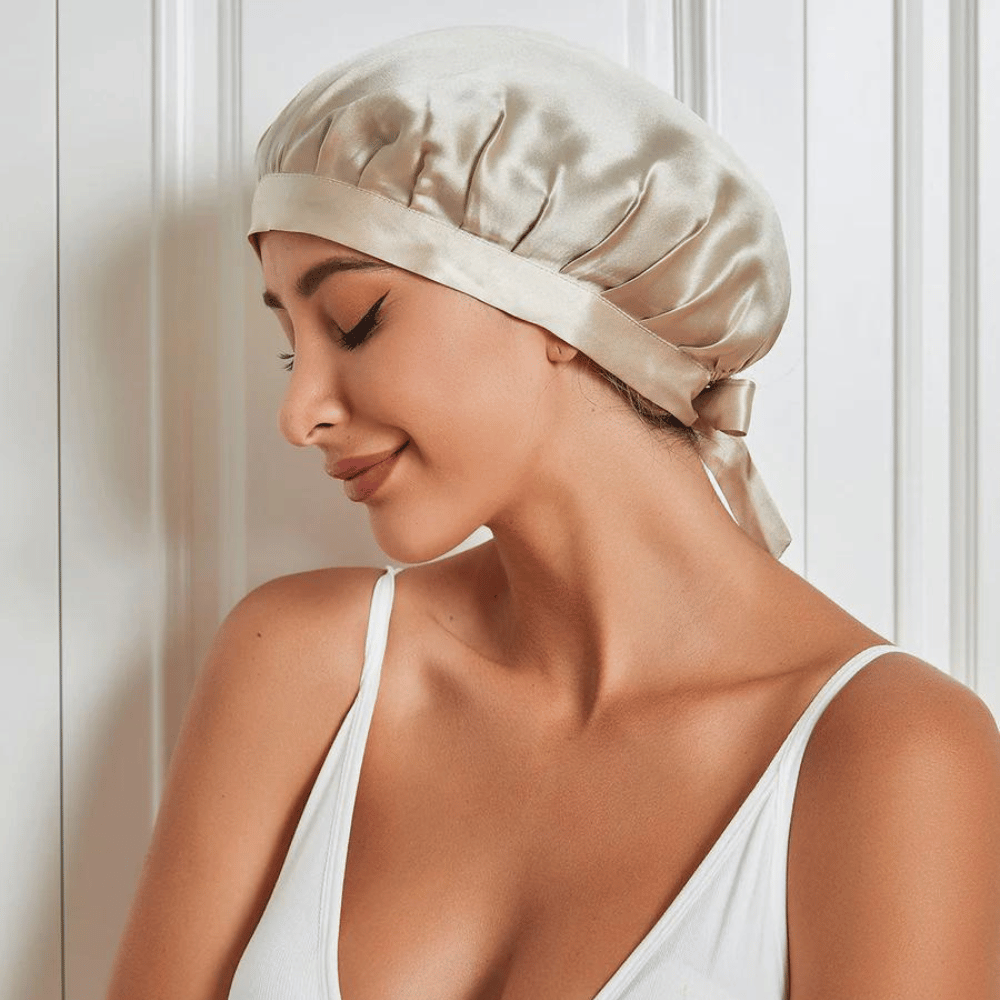
What is the best material for African sleep caps?
The best material for African sleep caps is subjective and can vary depending on personal preference and hair type. However, many people recommend using sleep caps made from silk or satin.
Satin and silk are both soft, gentle materials that can help to retain moisture in the hair, prevent breakage, and reduce friction while you sleep. They also have a smooth surface that can help to prevent hair from tangling and becoming matted.
Satin sleep caps are typically less expensive than silk sleep caps and are often more widely available. Satin is also a durable material that can withstand regular washing and use.
Silk sleep caps are typically more expensive than satin sleep caps, but they are also softer and more luxurious. Silk is a natural fiber that is hypoallergenic and has a similar structure to human hair, which can help to prevent damage and breakage.
Ultimately, the best material for an African sleep cap will depend on personal preference and hair type. Some people may prefer the affordability and durability of satin, while others may prefer the luxurious feel of silk. Regardless of the material, it's important to choose a sleep cap that fits comfortably and securely to prevent damage and promote healthy hair.


